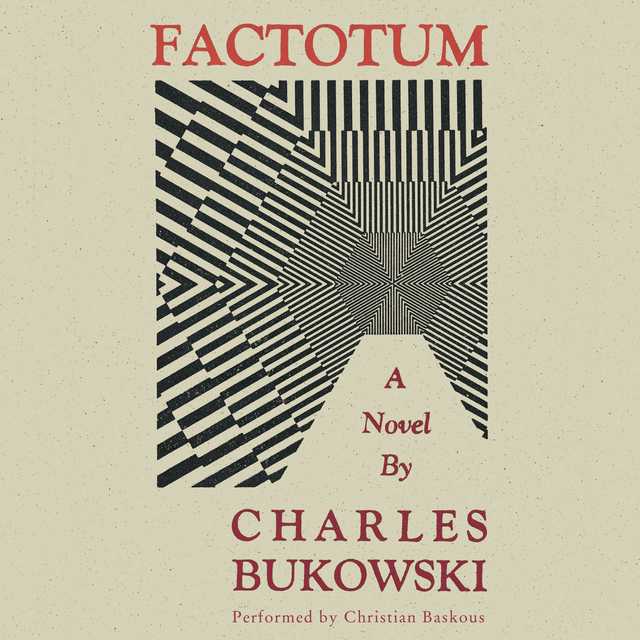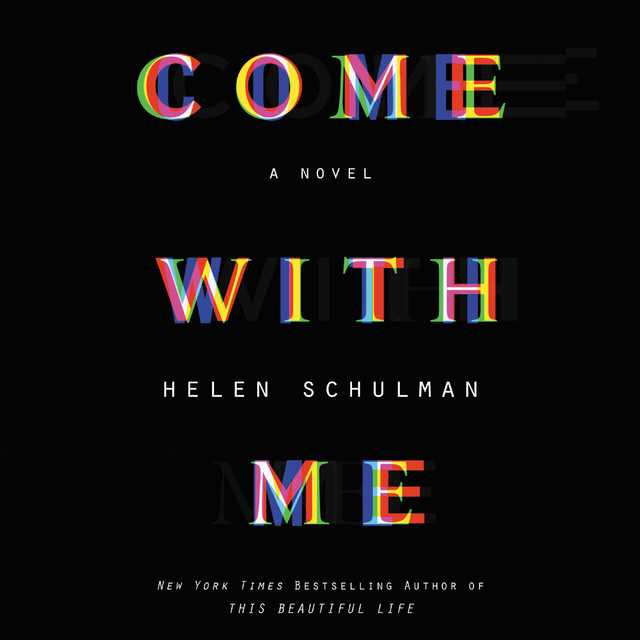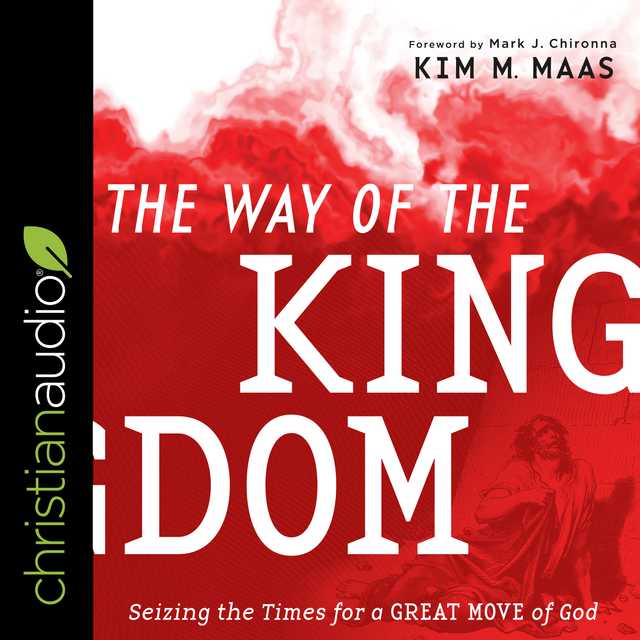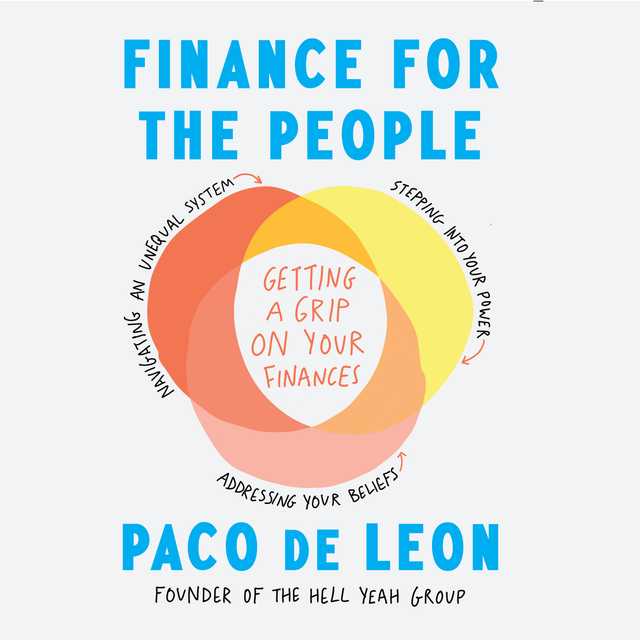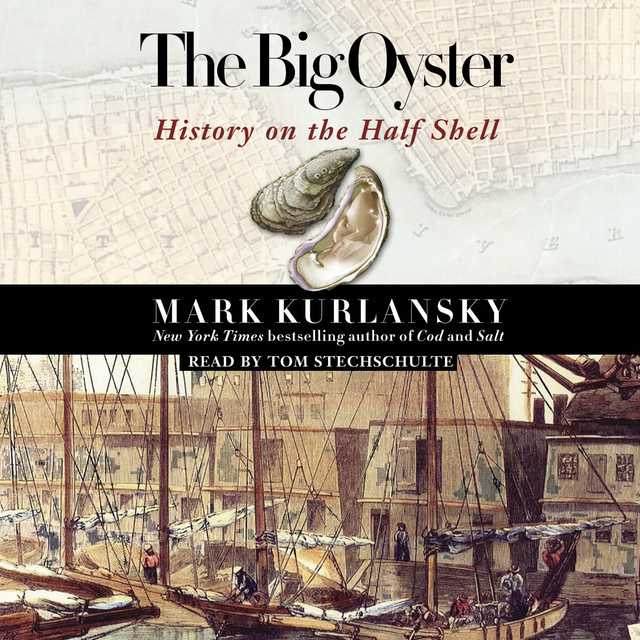Factotum Audiobook Summary
One of Charles Bukowski’s best, this beer-soaked, deliciously degenerate novel follows the wanderings of aspiring writer Henry Chinaski across World War II-era America. Deferred from military service, Chinaski travels from city to city, moving listlessly from one odd job to another, always needing money but never badly enough to keep a job. His day-to-day existence spirals into an endless litany of pathetic whores, sordid rooms, dreary embraces, and drunken brawls, as he makes his bitter, brilliant way from one drink to the next.
Charles Bukowski’s posthumous legend continues to grow. Factotum is a masterfully vivid evocation of slow-paced, low-life urbanity and alcoholism, and an excellent introduction to the fictional world of Charles Bukowski.
Other Top Audiobooks
Factotum Audiobook Narrator
Christian Baskous is the narrator of Factotum audiobook that was written by Charles Bukowski
Charles Bukowski is one of America’s best-known contemporary writers of poetry and prose and, many would claim, its most influential and imitated poet. He was born in 1920 in Andernach, Germany, to an American soldier father and a German mother, and brought to the United States at the age of two. He was raised in Los Angeles and lived there for over fifty years. He died in San Pedro, California, on March 9, 1994, at the age of seventy-three, shortly after completing his last novel, Pulp.
Abel Debritto, a former Fulbright scholar and current Marie Curie fellow, works in the digital humanities. He is the author of Charles Bukowski, King of the Underground, and the editor of the Bukowski collections On Writing, On Cats, and On Love.
About the Author(s) of Factotum
Charles Bukowski is the author of Factotum
More From the Same
- Author : Charles Bukowski
- Pulp
- Women
- Hot Water Music
- Post Office
- Hollywood
- Publisher : HarperAudio
- Abraham
- American Gods [TV Tie-In]
- Dead Ringer
- House of Sand and Fog
- Prey
Factotum Full Details
| Narrator | Christian Baskous |
| Length | 5 hours 8 minutes |
| Author | Charles Bukowski |
| Publisher | HarperAudio |
| Release date | August 13, 2013 |
| ISBN | 9780062302939 |
Additional info
The publisher of the Factotum is HarperAudio. The imprint is HarperAudio. It is supplied by HarperAudio. The ISBN-13 is 9780062302939.
Global Availability
This book is only available in the United States.
Goodreads Reviews
P.F.
October 01, 2009
people like talking shit about charles bukowski on goodreads, it seems funny.i liked this book a lot. henry chinaski is an asshole but he knows he's an asshole and simply accepts being an asshole. everything seems detached and transient, nothing really matters to him, life is just this "thing that is happening" which he feels powerless to, so he doesn't invest much emotion in the things he feels like he needs to do to stay alive, and drinks to avoid feelings of alienation. i laughed out loud several times, alone. this is the first bukowski novel i've read. i understand how people could claim that he's misogynistic, but it seems more to me like he is someone who is extremely detached from people in general, but also enjoys the experience of sex. when he talks about women in an "overly sexualized" way, they are usually women he doesn't know. in my experience, i usually objectify/have enhanced biases towards strangers of any kind -- or like, when i see a man i don't know who i'm intensely attracted to, i usually focus strongly on his physical characteristics because it's impossible to do anything else without knowing someone. bukowski seems to objectify women in a way that is not offensive, it just strikes me as what people who don't interact with a lot of people do, because people are always at a distance. he objectifies everything, kind of.i empathized with him a lot. if he were alive and someone it made sense for me to know, i would probably have intense feelings for him and we would have sex but he wouldn't be able to fall in love with me because he was too self-involved/depressed, or he'd see that i care too much or something. still, reading this made me feel less alone.i recommend this book to people who are depressed, introverted, maybe have had problems with alcohol, disenchanted with people/society in general, don't like lengthy descriptions/cliches/"language masturbation," and are able to view life with a detached, sarcastic eye.
Ahmad
October 15, 2021
Factotum, Charles BukowskiFactotum (1975) is the second novel by German born American author Charles Bukowski. Set in the 1940's, the plot follows Henry Chinaski, Bukowski's perpetually unemployed, alcoholic alter ego, who has been rejected from the World War II draft and makes his way from one menial job to the next (hence a factotum). Chinaski drifts through the seedy city streets of lower-class Los Angeles in search of a job that will not come between him and his first love: writing. He is consistently rejected by the only publishing house he respects, but is driven to continue by the knowledge that he could do better than the authors they publish. Chinaski begins sleeping with fellow barfly Jan, a kindred spirit he meets while drowning his sorrows at a bar. When a brief stint as a bookie finds him abandoned by the only woman with whom he is able to relate, a fling with gold-digging floozy Laura finds him once again falling into a morose state of perpetual drunkenness and unemployment.تاریخ نخستین خوانش روز هفتم ماه دسامبر سال دوهزاروهجده میلادیعنوان هزار پیشه؛ نویسنده چارلز بوکوفسکی؛ مترجم نیلوفر داد؛ ویراستار بابک حقایق؛ تهران، قاصدک صبا، یکهزاروسیصدونودوشش هجری؛ در یکصد هفتاد و هشت صفحه؛ شابک9786005675306؛ موضوع داستانهای نویسندگان آلمانی تبار ایالات متحده آمریکا - سده 20معنوان: هزار پیشه؛ نویسنده: چارلز بوکوفسکی؛ مترجم: علی امیرریاحی؛ ویراستار سعید خواجه افضلی؛ تهران، نگاه، 1396؛ در199ص؛ شابک9786003762398؛قهرمانِ داستانِ هزارپیشه، جوانی است به نام «هنری چیناسکی» است، که دوستانش او را «هَنک (خودمانی «هنری») صدا میزنند، همانندِ خودِ «بوکوفسکی» که همه او را به این نام میشناختند؛ در واقع او هم همانندِ نویسنده، یک آمریکاییِ «لهستانی» تبار است؛ «هنک» از خدمت نظام وظیفه معاف شده، و حتی اگر هم معاف نمیشد، بعید بود در جنگ شرکت کند؛ داستان در سالهایِ آخرِ جنگِ دومِ جهانی، و نیز دوره ی پس از جنگ میگذرد، یعنی زمانیکه همه ی همسن و سالهایِ او،در جبهه های اروپا، آفریقا، و خاورِ دور، هستند؛ اما «چیناسکی» علاقه ای به آن کارها ندارد؛ او اشتغال به هر کارِ پَستِ دیگری را، به جان و دل میپذیرد، و اوقاتِ فراغتش را، صرفِ نوشخواری، و زنبارگی، و ولگردی، میکند؛ به روزنامه ی «لُسآنجلس تایمز» میرود، تا برای شغلِ روزنامه نگاری درخواستِ کار کند، اما وقتی از اداره ی کارگزینیِ روزنامه، به او خبر میدهند، که تنها برای شغلِ نظافتچی میتوانند، استخدامش کنند، این شغل را رد نمیکند.؛ دوست دارد، حتی موقعِ عشقبازی به موسیقیِ کلاسیک گوش بدهد؛ این دوره ی بحرانیِ سالهایِ جنگ، و دوره ی بلافاصله پس از آن، باعثِ آن شده است، که او کمترین توجهی به راه و رسمِ رایجِ «زندگیِ آمریکایی» نشان ندهد؛ تنها چیزی که موردِ علاقه ی «چیناسکی» است، و او به طور جدی به آن میپردازد، نوشتنِ داستانهایِ کوتاهی است که با دست پاکنویس میکند، چون ماشین تحریر ندارد، و برای مجله هایِ مهمِ ادبی میفرستد؛ او میخواهد نویسنده بشود، و به عنوانِ نویسنده شناخته شود؛ در زندگیِ کولی واری که در پیش گرفته است (و ظاهراً هیچ آخر و عاقبتِ خوشی برایِ آن نمیتوان تصور کرد) هیچ چیزِ دیگری برایِ او مهم نیست.؛ او منتظر است؛ منتظرِ اینکه جامعه ی ادبی او را کشف کند؛ این تنها چیزی است که خواب و خوراک از او بریده است؛ و این در حقیقت، شمه ای از زندگینامۀ خودِ «بوکوفسکی» است؛ در واقع اُلگوی قهرمانِ این داستان، و دیگر رمانهایِ «بوکوفسکی»، خودِ اوست؛قلم بوکوفسکی همیشه جذاب است؛ ایشان ساده و کوتاه مینویسند؛ دیالوگهای طولانی در آثارش وجود ندارد؛ کلمات پیچیده استفاده نمیکند؛ به دنبال این نیست که خوانشگر را تحت تاثیر قرار دهد؛ ترسی از به کار بردن واژه های محاوره ای و کوچه بازاری ندارد؛ زشت است ولی این زشتی را به زیبایی نشان میدهد؛ موضوعات مهمی که دیگران به آن باور دارند، و برای آن حاضرند جان خود را فدا کنند، به سخره، و زندگی را آسانتر از هر فرد دیگری، میگیرد؛ از بیهودگی فرار نمیکند، و زندگی را به طرزی جذاب مسخره نشان میدهد و…؛ در عین حال «بوکوفسکی» در آثارش خوانشگر را به چالش میکشد، که فکری به حال خودش بکند؛ چون اگر این کار را نکند، غرقِ دنیای بیهودگی میشود؛ برای این نقطه ها را با نقطهویرگول یا سمیکالون جایگزین میکنم که هر روز برادران با یاری نرم افزارهای چین متنهای فارسی نگاشته شده را به هم میریزند، تا برای دیگران قابل خوانش نباشد، آداب و ادب کشورمان را خود به دست جوانان خود ویران میکنیمتاریخ بهنگام رسانی 06/09/1399هجری خورشیدی؛ ا. شربیانی
Jim
June 19, 2022
[Revised 6/19/22]A Jack Kerouac-type story of bumming across the country. But Hank Chinaski, our main character, started in LA and went east while Jack started east and went west. Jack would be a fun guy to have a beer with. And so would Hank except that with Hank, at the end of the night, you’d have to call a cab, dump him in the back set and give the cabbie his address, (to some run-down boarding house with bedbugs). Somehow next morning you’d still end up posting bail for him. The author lived the life of his character, at least for ten years when he was a raving alcoholic. Bukowski wrote many novels but was better known as a poet in his lifetime (1920-1994). Someone called the author the “Poet Laureate of Lowlife.”In the book, Hank is a full-blown alcoholic, working a job now and then to get enough money for his next binge. He loves to travel cross-country by bus and train, his suitcase filled with pints of whisky. (Although published in 1975, the story is set in the 1940s just after WW II.) In the book he starts out in New Orleans and travels to LA, then Philly and St. Louis, LA again, Miami and back to LA.His parents are in LA. When he comes home, drunk of course, there are tears, screaming, slappings from his mother, and fist fights with his father. Living at home is “not an option.” He’s constantly hitting on women in low-life bars and has a high success ratio – they are almost always prostitutes. So we have some graphic sex, and a bit about bodily functions, that strike me as almost ‘in celebration' of the fact that it is 1975 and you could write stuff like that now and still get published. Of course he’s a misogynist and we have the occasional inappropriate remarks about Jews, Blacks Hispanics and gays. When he cleans up his hotel room he thinks “I must be turning fag.” But as drinking buddies, Hank loves everyone until he decides to slap a woman or punch a guy out. A lot of the story is about the low-level jobs he worked. Hank is an aspiring writer who sends stories out weekly and occasionally has one published for $50. This is the only novel I’ve read that gives you an accurate idea of what it’s like to work jobs like these because I did too, and Bukowski tells it like it is. As a kid in high school and college I worked part-time evenings and full-time summers in three grocery stores (meat, produce and stocking shelves), clean-up boy in Woolworths, boxing hot-dog buns in an automated bakery, a hardware warehouse unloading trucks, taxi driver, a soda-canning plant, and two plastics factories (including the Titleist golf-ball factory!) and as a salesclerk in Western Auto (anyone remember those?).I liked the story and it’s an easy read with straight-forward writing. I’m glad I read something by a new author previously unknown to me. Since then Ive also read and enjoyed his novel Post Office. The author's grave in Los Angeles from, wikipediaWorkers in a Texas onion warehouse in the 1950s from texashistoryarchives.comThe author from amazon.com
Mutasim
August 05, 2020
fac·to·tum/fakˈtōdəm/noun An employee who does all kinds of work. Welcome Henry Chinaski, Bukowski's ever sarcastic, cynical, alcoholic and perpetually unemployed alter-ego. It's the 1940s, Chinaski had been rejected by the World War II drafts on account of his mental health, and he's searching for a job. A job that would serve him nicely and won't come in between him and his true love: writing. “How in the hell could a man enjoy being awakened at 8:30 a.m. by an alarm clock, leap out of bed, dress, force-feed, shit, piss, brush teeth and hair, and fight traffic to get to a place where essentially you made lots of money for somebody else and were asked to be grateful for the opportunity to do so?” Chinaski works one menial job after another and gets thrown out of most, except the ones he leaves on his own (hence, factotum). He constantly writes short-stories to Clay Gladmore, whose New York magazine "Frontfire" he admired. As it happens, all of them come back with a rejection slip. “Nothing is worse than to finish a good shit, then reach over and find the toilet paper container empty. Even the most horrible human being on earth deserves to wipe his ass.” As with most Chinaski stories, we end up finding love over drinks at a bar.... "Baby,” I said, “I’m a genius but nobody knows it but me.” She looked down at me. “Get up off the floor you damn fool and get me a drink. " ....or over a hamburger and beer.... "She was strange; she was always hot in the morning with her hangovers. I was not so hot in the mornings with mine. I was a night man. But at night she was always screaming and throwing things at me: telephones, telephone books, bottles, glasses (full and empty), radios, purses, guitars, ashtrays, dictionaries, broken watch bands, alarm clocks…She was an unusual woman." ....only to lose it all. “I hate it when he fucks me,” Jan had said. She was now probably saying the same thing about me to him. In the end, we just get a full-on Bukowski moment at a strip-joint, as we prepare to go out in a blaze of unemployed, poverty-stricken, alcoholic frenzy, but.... "And I couldn’t get it up." Loved this book, from start to finish.
Dave
August 18, 2019
I love this poem about the drunken Charles Bukowski, written by Raymond Carver, depicting (fictional?) Buk speaking to a bunch of creative writing students, in “You Don’t Know What Love Is”:https://bukowskiforum.com/threads/you...A “factotum” describes someone who does a range of "low-level" (meaning low-paid) work. This short novel I listened to, which makes it a bit like a guy telling you his life story while drinking you under the table (oh, he always could, and even now, years gone, could probably still do it). I was driving while listening to it, and not drinking as I was driving, for your information, thanks. The story is really a prequel to Ham and Rye, which was about the early years of Henry Chinaski, Bukowksi’s mostly (I am told) autobiographical main character. If Ham on Rye is about Chinaski's lost youth, Buk's second one features Chinaski's lost twenties about booze, terrible jobs, women, and drunken brawls. Because of the title, there might be a greater focus here on all the soul-killing, mind-numbing jobs he worked to pay for flophouse rent and booze, almost all of them from which he was fired, sometimes after only a day. In one job, he got paid by a bar owner 5 bucks and all the shots of whiskey he could drink to clean a total of six window blinds, which as it turns out took him all day, and in the end required—because he was of course drunk—the help of all his fellow bar patrons, for whom he used the five bucks to buy a round (this was the fifties, when five bucks could actually almost buy a bar full of patrons a round; well, almost. In the end he had to put $8.50 on the tab he owed the bartender).Bukowski also worked at Sears FIVE different times during this period, fired each time for stealing and various other infractions. Usually for not showing up for work while he was on a three-day bender with some girl, or healing from some fight. Hey, I worked at Sears, in the stockroom, for a year or so! Boring job, in which I hid out and read books during long evening shifts. Did I ever sneak in a bottle of wine for me and my fellow misery-suffering-warehouse rats? I seem to recall I may have done this once or twice, but you ain't a priest, and this ain't no confessional booth.Factotum doesn’t quite have the innocence of Ham and Rye, when he actually just lusted after various girls and women, when he was just a kid. In this book he actually has a lot of sex, some of it funny, all of it described in gloriously vulgar detail, though finally, as with the jobs, it’s really mostly misery, all the time. He’s going nowhere fast. And it feels like the well-told raucous romp of a million alcoholics. And a guy who is during this time often an unapologetic asshole. I think you could ask any of the women he was “with” during this period for their view of him and it would not be positive (though when they were drinking with him, at least, I am sure they had fun).But can I turn away and stop listening? Nope. Bukowski will be hilarious for some, and too offensive for many, but he sure can tell a story. The poverty and squalor of Factotum is not quite as fun as it was in Ham and Rye, but at his best, Bukowski is worth the offense, imho: “It was true that I didn’t have much ambition, but there ought to be a place for people without ambition, I mean a better place than the one usually reserved. How in the hell could a man enjoy being awakened at 6:30 a.m. by an alarm clock, leap out of bed, dress, force-feed, shit, piss, brush teeth and hair, and fight traffic to get to a place where essentially you made lots of money for somebody else and were asked to be grateful for the opportunity to do so?”Who in working class America cannot raise a glass to that? In the end, Bukowski reveals himself in all his assholism to be in the company of other great and painful stories of the ravages of booze, such as Malcolm Lowry’s Under the Volcano, or any Kerouac, or Raymond Carver’s What We Talk About When We Talk About Love. Bukowski almost convinces you that the pursuit of drunkenness as a way of coping with reality is a kind of spiritual pursuit:“If you're going to try, go all the way. Otherwise, don't even start. This could mean losing girlfriends, wives, relatives and maybe even your mind. It could mean not eating for three or four days. It could mean freezing on a park bench. It could mean jail. It could mean derision. It could mean mockery—isolation. Isolation is the gift. All the others are a test of your endurance, of how much you really want to do it. And, you'll do it, despite rejection and the worst odds. And it will be better than anything else you can imagine. If you're going to try, go all the way. There is no other feeling like that. You will be alone with the gods, and the nights will flame with fire. You will ride life straight to perfect laughter. It's the only good fight there is.”Factotum is not for everyone, I warn you, or welcome you, depending on your love of the tales of the down and out.
Jon
December 10, 2021
When the undercurrent of life starts to pull you away even struggling against it can take you further away...this book is the perfect example of this. Over the years I have really come to appreciate the raw honesty of Bukowski - his work was always true to who he was. Sometimes I go to the used bookstore by my house just to see if any of his works are there.
Sean Barrs
November 05, 2020
Every so often, maybe one in every 200 hundred books, there will be a passage that just speaks to you. It may be just a sentence or a few words or it may be something much larger. But either way, such words have the power to profoundly affect your life. There is a before and an after. A time where you didn't read them and a time in which you have. And you can mark the progress of your life through such experiences. And, for me, it's been a long time in which I have read words that have moved me to action so. I will leave them here: “If you're going to try, go all the way. Otherwise, don't even start." ___________________________________You can connect with me on social media via My Linktree.__________________________________
Brian
August 20, 2019
"What kind of job you looking for?" "Stockboy, shipping clerk, janitor." The denizens of Bukowski's fictional world encompass the marginalized chaff of mid-20thcentury America. Barely a step ahead of abject vagrancy, Bukowski's protagonist and alter-ego Henry Chinaski is the everyman of our species comfortable asking the bare minimum of this world. When you drank the world was still out there, but for the moment it didn't have you by the throat.Chinaski's story isn't pretty, but Bukowski isn't concerned about offending a reader's middle-class American sensibilities. If the reader comes to this text with our typical baggage: work issues, money problems, familial strife - Chinaski's search for his next drink and fuck can be jarring. It's a credit to Bukowski's genius that he can make a character and not a caricature.How in the hell could a man enjoy being awakened at 8:30 a.m. by an alarm clock, leap out of bed, dress, force-feed, shit, piss, brush teeth and hair, and fight traffic to get to a place where essentially you made lots of money for somebody else and were asked to be grateful for the opportunity to do so?
Cathérine
November 22, 2017
Great as always, you gotta love him!
Magdalen
December 04, 2016
"These people are assholes, assholes! They have no intelligence! They don't know how to think! They're afraid of the mind! They're sick! They're cowards! They aren't thinking men like you and me" A writer who struggles to make ends meet so he takes every job he can possibly find. Bukowski's writing is sharp, brutal, raw. The story at some parts I could even describe it as depressing.. (lost count of how many jobs he changed or how many females he slept with) For me Factotum is brilliant. Having read Ask the dust it's obvious what effect Fante had on Bukowski. I found so many similarities, but I still like Factotum more. I am so glad that I read it again because there were so many quotes I've missed when I first read it. People don't need love. What they need is success in one form or another. It can be love but it needn't be Factotum I guess it's not a book for everyone, but those who dare to read it will find some things to like about it.
André
August 11, 2019
“Baby," I said, "I'm a genius but nobody knows it but me.”... a genius barfly of wrongdoing, and a master of procrastination. When someone is so into an endless pit, ambition is something that definitely lacks. Henry Chinaski, like the typical anti-hero, is careless in harsh periods. When several young people were fighting at the world war II, away from their homes, our dearest anti-hero was dwelling and struggling around the country. Set in the 1940s, during and after World War II, Bukowski presents another specific period of his life, a period of continuous unemployment, alcoholism, and experiences with low-life women. Chinaski roams around LA streets and the US working on temporary jobs. Meanwhile, he tries to conciliate his writing passion, but with no success. The Protagonist tries hard in having his works published, but, is continually rejected by publishers. During this time period, Bukowski's anti-hero has a close relationship with bar-fly Jan, another low-life with no ambition in life. Laura, a gold-digging hustler, is just another woman that completes Chinaski's mischief world. The anti-hero presents a period of eternal unemployment, alcoholism, and struggling at extending his writing abilities. Unlike the first novel, the protagonist is much more careless professionally, and, lacks some experience with women. It's in this novel where Chinaski depicts his first experiences with horse racings and his real struggling with writing. The raw and brutal writing couldn't miss. It's through his literary language that Bukowski delivers his life experiences in an efficient way.Overall, the author's story is not beautiful. It's a hymn against the tedious daily life, a kind of life that Bukowski strongly rejects. "How in the hell could a man enjoy being awakened at 6:30 a.m. by an alarm clock, leap out of bed, dress, force-feed, shit, piss, brush teeth and hair, and fight traffic to get to a place where essentially you made lots of money for somebody else and were asked to be grateful for the opportunity to do so?"Rating: 4.5/5 Stars
Supreeth
July 29, 2018
Chinaski has this new job, he's a bartender now. He's not all into it anyway. He can't remember the name of the woman he had sex with last night, or was it last hour? He's not sure. The bar is pretty noisy, this singer's all, work work work work. She's sort of dusky and short, wearing black lipsticks. She's wiggling and wobbling, but he's not into her. work work work work.'These people are assholes' he murmurs. He said me huffi, work work work work work'These people are assholes, they're all cowards', he murmurs again. work work work workThis singer's all twerking and stuff, Chinaski loses it. He says fuck it and walks upto the crowd, 'get out of my way' he grunts, trudging through them. He climbs the stage, people cup their chins, they go all ooh and ah. work work work work, he pushes the girl aside, grabs her mic. "You're fired" the manager screams from the crowd. Chinaski just lost his 178th job. "Fuck work" he says, dropping the mic.
Frequently asked questions
Listening to audiobooks not only easy, it is also very convenient. You can listen to audiobooks on almost every device. From your laptop to your smart phone or even a smart speaker like Apple HomePod or even Alexa. Here’s how you can get started listening to audiobooks.
- 1. Download your favorite audiobook app such as Speechify.
- 2. Sign up for an account.
- 3. Browse the library for the best audiobooks and select the first one for free
- 4. Download the audiobook file to your device
- 5. Open the Speechify audiobook app and select the audiobook you want to listen to.
- 6. Adjust the playback speed and other settings to your preference.
- 7. Press play and enjoy!
While you can listen to the bestsellers on almost any device, and preferences may vary, generally smart phones are offer the most convenience factor. You could be working out, grocery shopping, or even watching your dog in the dog park on a Saturday morning.
However, most audiobook apps work across multiple devices so you can pick up that riveting new Stephen King book you started at the dog park, back on your laptop when you get back home.
Speechify is one of the best apps for audiobooks. The pricing structure is the most competitive in the market and the app is easy to use. It features the best sellers and award winning authors. Listen to your favorite books or discover new ones and listen to real voice actors read to you. Getting started is easy, the first book is free.
Research showcasing the brain health benefits of reading on a regular basis is wide-ranging and undeniable. However, research comparing the benefits of reading vs listening is much more sparse. According to professor of psychology and author Dr. Kristen Willeumier, though, there is good reason to believe that the reading experience provided by audiobooks offers many of the same brain benefits as reading a physical book.
Audiobooks are recordings of books that are read aloud by a professional voice actor. The recordings are typically available for purchase and download in digital formats such as MP3, WMA, or AAC. They can also be streamed from online services like Speechify, Audible, AppleBooks, or Spotify.
You simply download the app onto your smart phone, create your account, and in Speechify, you can choose your first book, from our vast library of best-sellers and classics, to read for free.
Audiobooks, like real books can add up over time. Here’s where you can listen to audiobooks for free. Speechify let’s you read your first best seller for free. Apart from that, we have a vast selection of free audiobooks that you can enjoy. Get the same rich experience no matter if the book was free or not.
It depends. Yes, there are free audiobooks and paid audiobooks. Speechify offers a blend of both!
It varies. The easiest way depends on a few things. The app and service you use, which device, and platform. Speechify is the easiest way to listen to audiobooks. Downloading the app is quick. It is not a large app and does not eat up space on your iPhone or Android device.
Listening to audiobooks on your smart phone, with Speechify, is the easiest way to listen to audiobooks.

